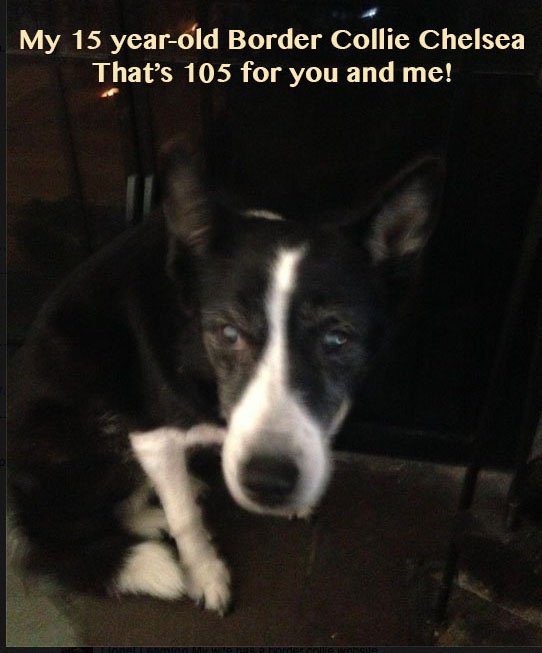
* How to Cope With an Aging Border Collie Dog
When it comes to having a dog, one of the hardest things you will ever do is deal with a dog as he ages. The threat of a dog becoming ill and possibly dying can be hard for many people to handle, especially after so many years spent together.
Although an elderly dog may be a lot more work, he still deserves your utmost attention in his waning years.
Here are some tips to help you maintain the health and spirits of an aging dog, both for the animal and yourself.
* Proper Care
A dog needs additional care as he gets older. What’s more, if you take very good care of your dog as he ages, you’ll be able to waylay many of the signs of aging, ensuring that your dog doesn’t get ill earlier than necessary.
Visiting the vet every year can help reduce the chances of things like distemper or hepatitis, along with the diseases that ticks, fleas and mosquitos can carry. You should also have your dog checked for parasites each year to make sure his digestive health is maintained.
Exercise is vital for a dog as he ages. Many times, a dog will lose energy with age and start to gain weight. Owners see a dog not wanting to exercise and will all too often oblige. But even if your dog has no desire to walk, you should still take him out on a regular schedule until he can no longer do it.
* Aging Signs
As a dog ages, you’ll start to notice certain signs. For example, an aged dog will grow more lethargic, will start to sleep much more, and will generally lose enthusiasm for some of the things he used to get so happy about.
An older dog will also respond more severely to weather conditions, avoiding cold or heat. He might also be stiff after sleeping and show signs of dehydration when the weather gets warm.
Additionally, hearing loss is a very common problem, along with blindness – something that is hard to notice in many breeds.
The coat and skin will alter, as well, as dogs age – with less oil in their coats and stiffer, drier skin in
general. They may also have trouble healing from wounds and may get sick as they age due to weaker immune systems.
* Special Care With Age
It is important to realize that an aging dog cannot be kept alive indefinitely, but you can make him more comfortable and give your family time to come to terms with your pet’s fate.
Start avoiding certain challenges, such as stairs, and reduce his calorie intake to keep him healthy as he gets older.
You may want to take your pet to the vet more often as well to check for diseases and make sure your dog is not in pain in any way that you might have missed.
Exercise is very important, even when your dog would rather not walk. The only time you should not walk your dog is if he is in obvious pain or simply will not go.
If you start treating your dog like an invalid when he is otherwise rather healthy, you’ll likely only accelerate the aging process.
Dogs, no matter their age, want to have fun and enjoy their families. Give them that joy and reduce sources of potential stress and pain, and life will be much easier for everyone.
You’ll be able to have a much better time as you approach the inevitable, and your dog will be comfortable.


